Another year, another great round of Australian cinema to dig into. Just like with 2017 and 2016, Australia has managed to produce some of the best cinema that there is to offer.
Without going on too long, here’s the thirty best Australian films of 2018.
30. Ellipsis
Director: David Wenham
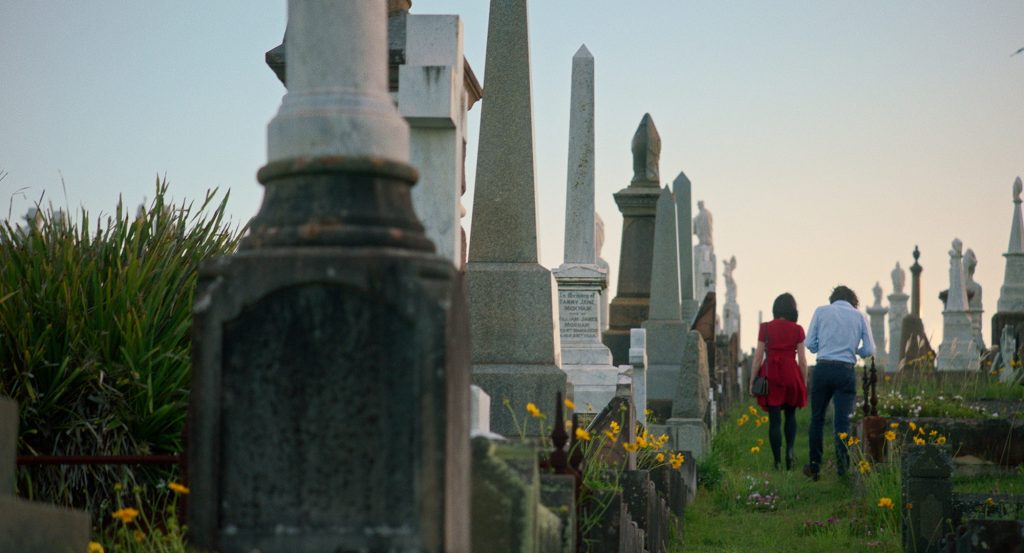

Actor David Wenham heads behind the camera for the first time with this Linklater-esque flick about two strangers bumping into each other in Sydney. Wenham chooses to show Sydney through the different folks who make the tourist destination such a unique place. Whether it’s the watch repairman (Ferdinand Hoang), or the exuberant sex shop owners, or the homeless guy, or the many other faces that line the streets of Sydney, there’s a warm respect and admiration for the folks that live on our periphery as we go about our day to day lives. Hopefully it’s not long before Wenham is behind the camera.
29. Ghosthunter
Director: Ben Lawrence
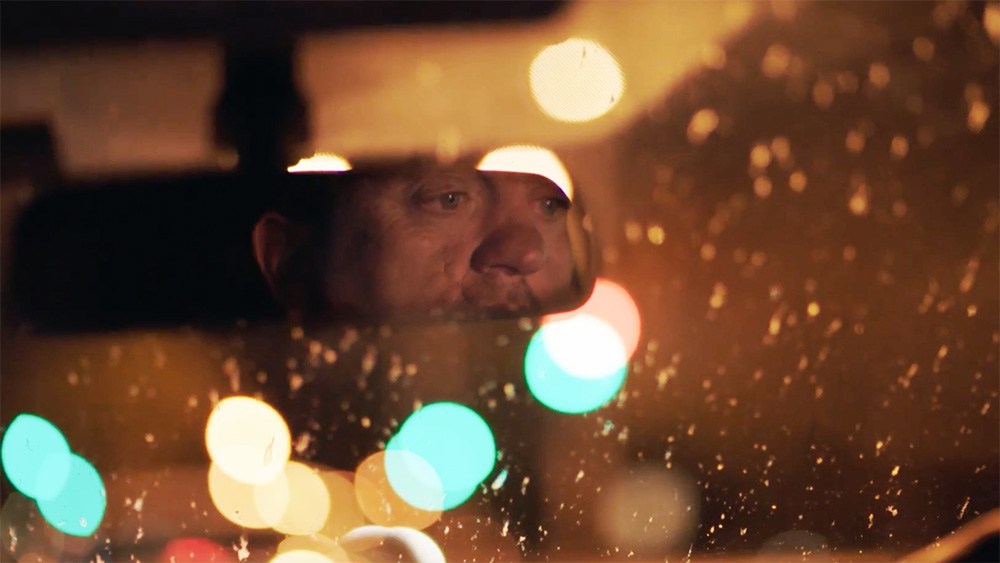

The first of a huge bundle of documentaries on this list, Ghosthunter is not an easy watch. Director Ben Lawrence follows Jason King, a part-time ghosthunter who helps those in need of dealing with any apparitions that may be lingering around their homes. Jason outwardly appears as a gentle guy, someone who loves what he does and cares about the people he’s helping. But, he’s also got some ghosts of his own that need exploring – namely, those left over from the relationship he has with his parents. Lawrence teases out a difficult story from King, while at the same time he forces viewers to question what the relationship is between a documentary director and their subject. Unsettling,and yet extremely moving.
28. Big in Japan
Directors: Lachlan Mcleod, David Elliot-Jones & Louid Dai
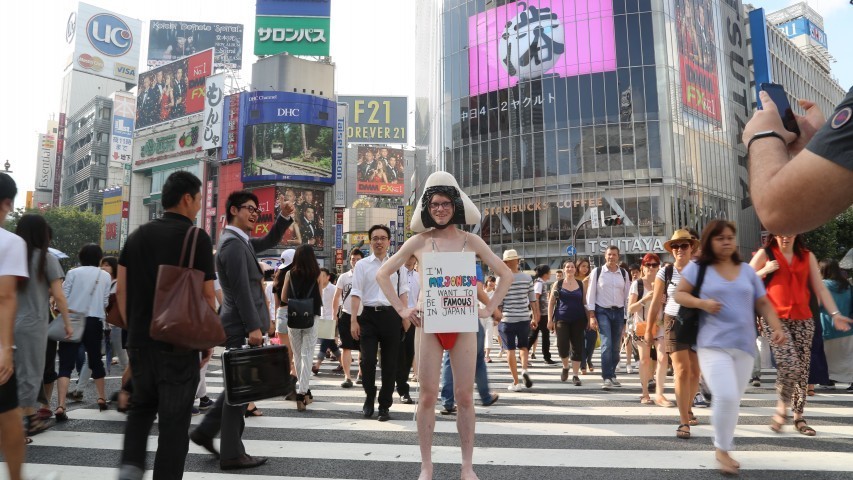

And now for something completely different. The world of Japan is one of eccentricity – men dressed as women singing hard core death metal, or women dressed up as schoolgirls, singing pop songs in front of a handful of people, or, as is the case with ordinary guy Dave, a regular dude dressed up as onigiri. Through the eyes of Dave’s friends who try and embark on a social experiment to see if they can make their basic pal‘big in Japan’, the world of celebrity in Japan is explored. At times is outright hilarious, and then, at other times, it’s simply heartbreaking. While maybe not as explorative of the culture of celebrity as it initially aims to be, Big in Japan is still a unique and bizarre world to step into.
27. The Pretend One
Director: Tony Prescott


Director Tony Prescott brings whimsy to the farmyard, with this story of Charlie (Geraldine Hakewill) and her imaginary friend, Hugo (Michael Whalley). Single dad Roger (the ever reliable David Field) has had to raise Charlie as best as he could, with him seeking out help from a hypnotherapist to help with Charlie’s imaginary friend problem – a problem that lingers long into adulthood. While the concept slightly falls apart near the end, the core performances from Hakewill and Whalley are charming. Whalley’s Hugo initially appears grating, but his humanity starts to shine as the film progresses.
26. Pulse
Director: Stevie Cruz-Martin
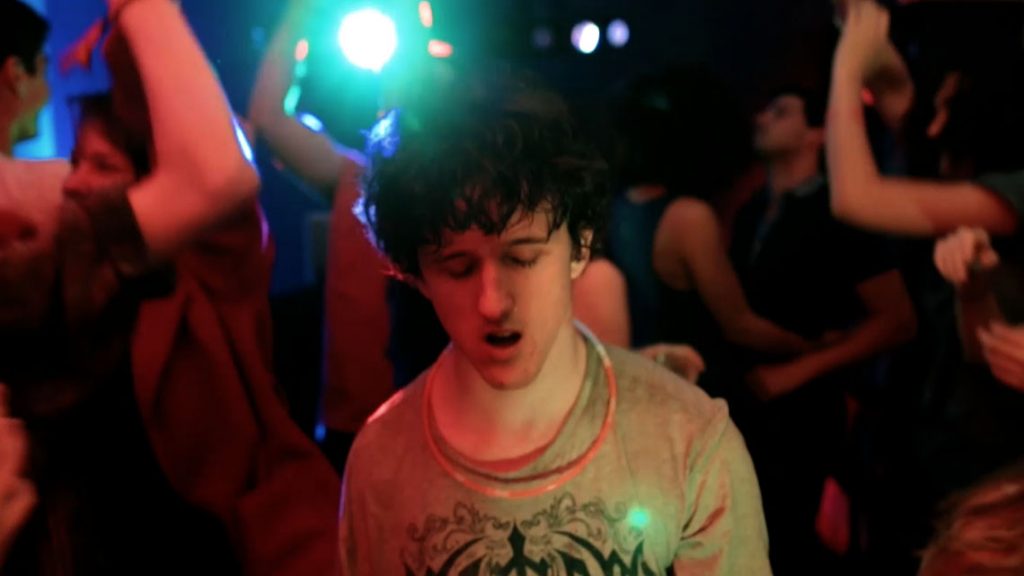

Written and starring AACTA Award nominee Daniel Monks, Pulse is a film of two minds. It grapples with the complexities of being a high school kid growing up disabled, as well as the difficulties of also being a gay highschool kid. Monks performance is superb, delivering one of the best Australian performances of the year. While Pulse struggles to grapple with the transgender subtext of its body swapping concept (to live an able bodied life, as well as to make a move on his best friend, Olly embarks on an experimental body swapping transplant that allows him to move into the body of a woman), it does so by exploring the reality of being gay and disabled. Daniel Monks is a genuine talent, and Pulse shows that he’s someone that needs to be paid attention to.
25. I Used to Be Normal: A Boyband Fangirl Story
Director: Jessica Leski
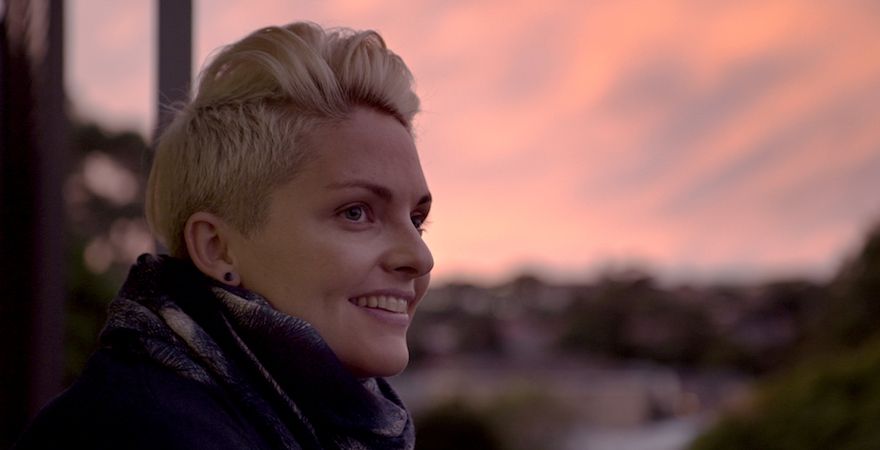

There’s a unique charm to this documentary about boy bands. The charm being simple,unfettered joy. It’s infectious. It’s deceptively simple, yet, you can’t help but leave I Used to Be Normal walking on air. This documentary made me remember the pure joy of being a fan of the Spice Girls (Baby Spice was number one then, but I’ve grown to greatly appreciate Ginger as the years have gone by, and I stand by the fact that nobody, and I really mean nobody, liked Posh Spice, and if they say they do then they are lying). The comfort in knowing all the lyrics to a band, in being quietly (or, in the case of this documentary, very loudly) obsessed with every member of the band. There’s so much to love here, and so much to applaud with the purely innocent world of women loving boy bands. Gosh, it just makes your heart beam with warmth and you can’t help but smile. Genuinely lovely stuff.
24. The Merger
Director: Mark Grentell
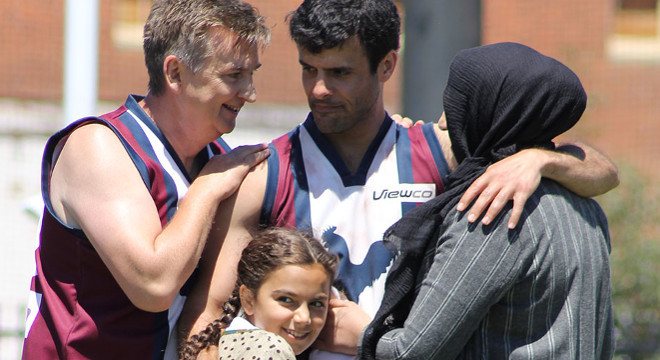

23. Book Week
Director: Heath Davis
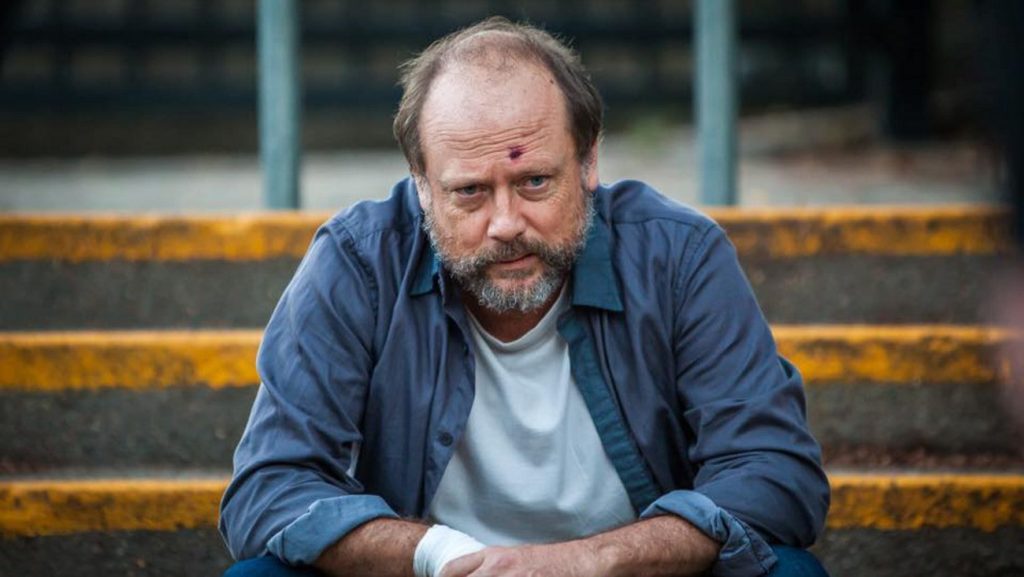

22. Swinging Safari
Director: Stephan Elliot
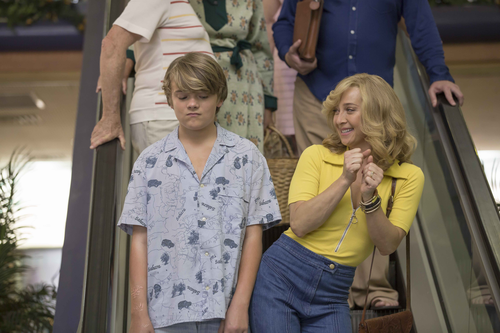

Aussie comedies worked hard in 2018. After the downright essential Three Summers in 2017, there was a fair challenge for the films that were coming through in 2018 that they simply might not make the scratch. Well, this triple whammy of The Merger, Book Week and Swinging Safari managed to do exactly that. One brought the social awareness of refugees to the football field, another brought the pitch black comedy about the doomed shenanigans of a failed author and his students, and the other brought the flammable polyester of the seventies to the beach and blew it all up. All three showcase Australia with charm and affection, and all three have a wealth of comedy gold.
Now, who the fuck said that Australian films were too serious?
21. RocKabul
Director: Travis Beard


Following on the steps of one of the best Aussie films of 2017, Meal Tickets, producer Brooke Silcox doesn’t stop for a moment with this killer doco about heavy metal in Afghanistan. Journo turned director Travis Beard brings a lived in awareness of Afghanistan to this story about District Unknown, the first Afghani heavy metal band. All the societal issues that come with tearing down a system that has kept culture out for years is dragged over the guitar strings, left to wail in the auditoriums that provide an ounce of freedom. Raucous, exciting, and terrifying, RocKabul is a brilliant doco that demands your attention – just as the work of Brooke Silcox demands your attention.
20. Living Universe
Directors: Alex Barry & Vincent Amouroux


The universe, it goes on forever. It dwarfs the human race in every way, yet that doesn’t stop us discarding our humility and thinking ‘you know what, we can conquer that’. Living Universe takes the science of today, and carries it to its logical conclusion of where that science will take us in the future. It’s a beautiful tale about celebrating the minds that are making space exploration possible today by showing what the fruits of their labours will bring in the future. The CGI landscapes of the world are superbly realised, and the always enjoyable Dr Karl Kruszelnicki provides engaging, informative narration to help guide the journey to discovering life in the universe.
19. Lost Gully Road
Director: Donna McRae
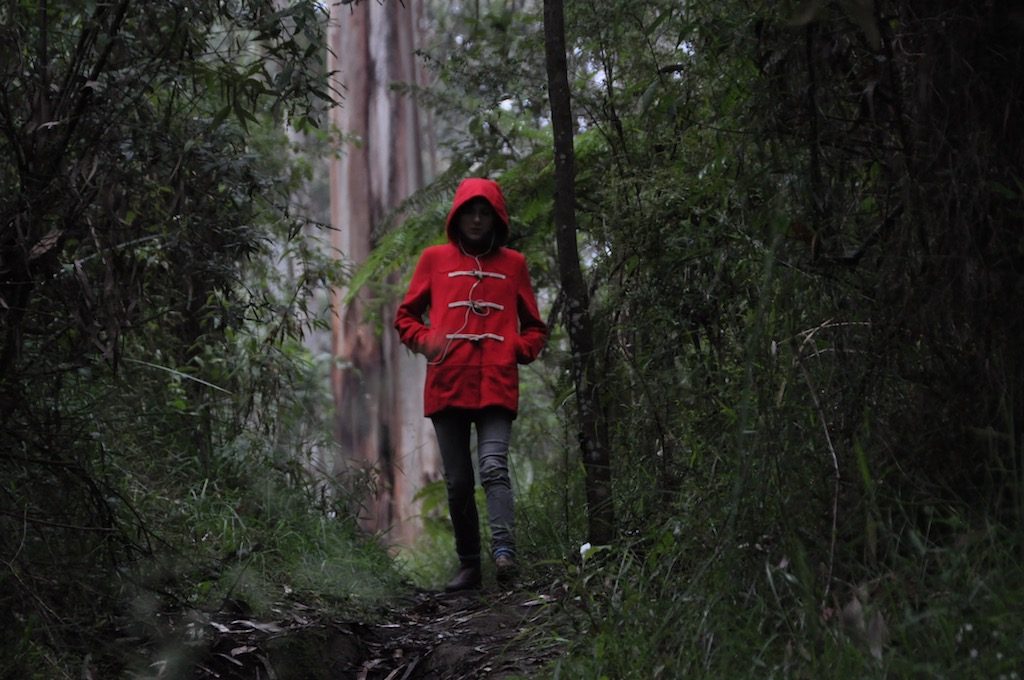

After The Babadook and Berlin Syndrome, Aussie women directors and horror are going through a minor revival. Joining that great line-up is Donna McRae’s quiet creep-fest, Lost Gully Road. Focusing on Adele Perovic’s Lucy, Lost Gully Road takes horror fans somewhere new for Australian cinema – the sprawling, endless green forest of the Dandenong’s. Lucy, escaping a life that threatens her, heads to the forest to await the arrival of her sister. While there, unseen forces threaten her. Lost Gully Road is a film of the moment, showcasing the pure fear that masculinity can bring to the life of a woman, regardless of whether she is standing right beside a man, or in a room all by herself, the grasp of toxic masculinity is not far away.Unsettling and downright effective.
(It’s also worthwhile noting that Adele Perovic featured in a great short film called Eye Contact about the addictive nature of the internet. Well worth seeking out if you can find it.)
18. Gurrumul
Director: Paul Damien Williams
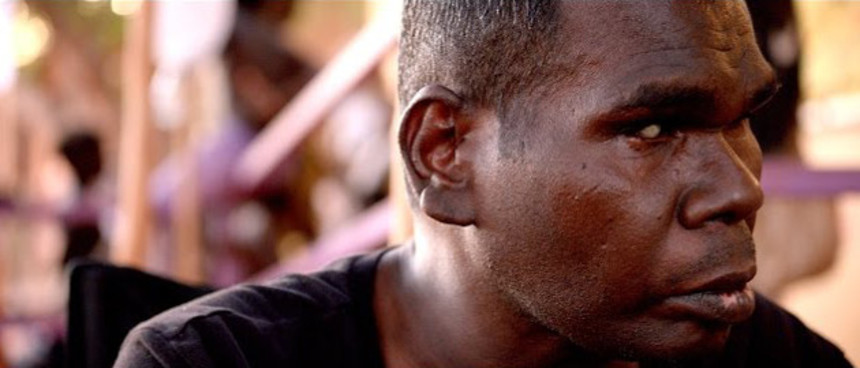

Director Paul Damien Williams was a close friend of the great Dr G Yunupingu, and it’s this close relationship with Gurrumul and his collaborator Michael Hohnen, and Mark Grose, that makes Gurrumul such a profoundly moving experience. Gurrumul is a portrait of an artist who broke down barriers and brought an understanding of the issues facing indigenous Australians to the world stage. Gurrumul’s music moves you in ways that most music struggles to. These are stories that have carried through the lineage of the Yolngu people are brought to the masses in beautiful, heartwarming and heartbreaking songs that are delivered with Gurrumul’s powerful voice. This is an essential film to watch, working as a powerful reminder of an Australian great gone too soon.
17. Finding the Line
Director: Bjarne Sahlen
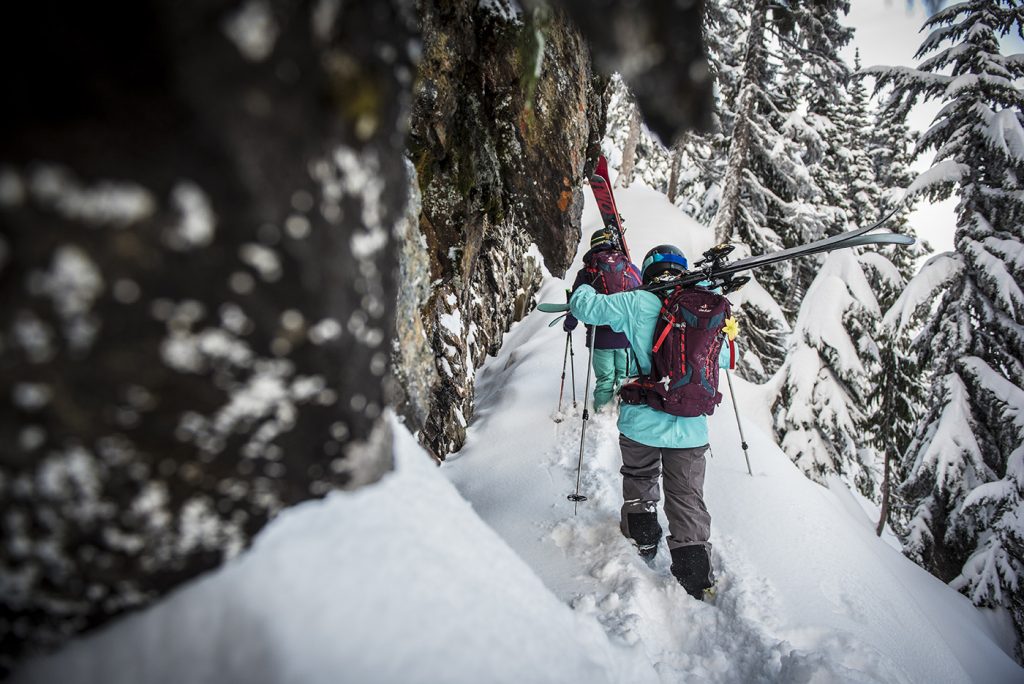

One of the best parts about exploring cinema, and writing and talking about cinema, is that you manage to find out about great films that you simply may have missed otherwise. Having engaged with the Melbourne Documentary Film Festival two years in a row, I’ve been exposed to some really superb documentaries. Finding the Line is one such film. Sisters Anna and Nat Segal are skiers, tackling the biggest mountains in the world, tackling the world of the Olympics, tackling extreme sports – and, while they do this, they tackle fear as well. Finding the Line is an exploration into the term ‘because it’s there’, as well as exploring what it means to be a professional athlete.While the views of the mountain are simply stunning, evoking images of Jennifer Peedom’s Sherpa and Mountain, it’s the relationship that Anna and Nat have with each other, supporting each other as they tackle a new mountain, and most importantly, supporting each other with their mental health.At a brisk 52 minutes long, Finding the Line is extremely deep with its narrative, all the while employing some truly stunning drone cinematography.
16. Breath
Director: Simon Baker
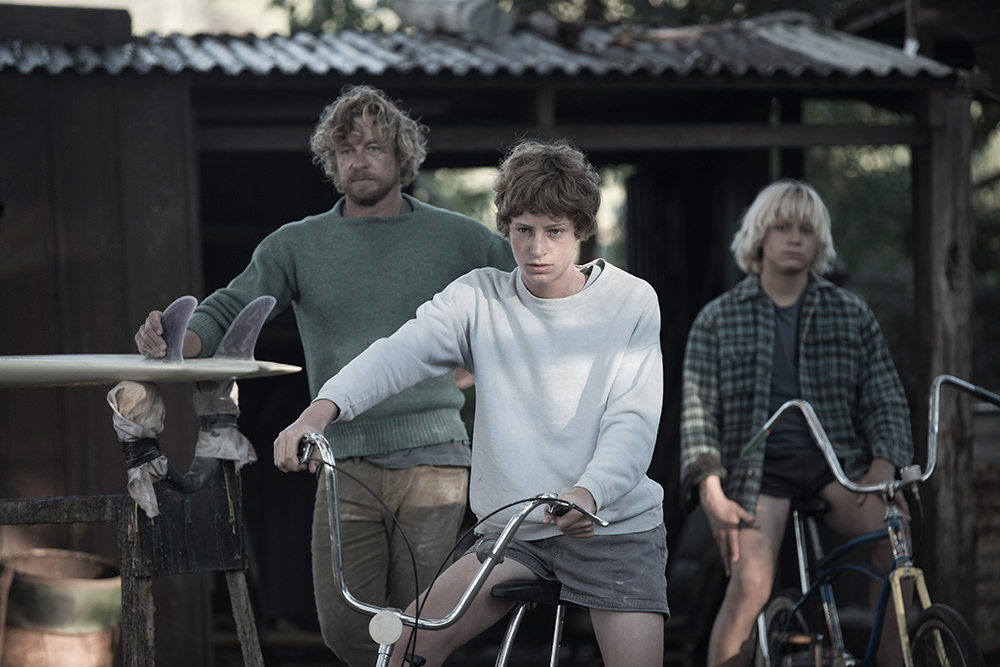

Tim Winton has forged a legacy for himself which in turn has forged the way many see the landscape of Western Australia. Raging waves, rugged men, boys who struggle with the difficult path the puberty puts them on – these are all the archetypes of the Tim Winton narrative. First time director Simon Baker brings one of Winton’s weaker books,Breath, to life – managing to showcase the South West of Australia in all its beauty. Firstly, the cinematography by Marden Dean and Rick Rifici is reason enough to watch this film – Rifici’s water based cinematography is simply some of the finest you’ll see this year.Secondly, the casting of Samson Coulter and Ben Spence as the lead characters Pikelet and Loonie is inspired. Spence in particular has a rage that burns deep in him that is clearly coming from a personal place. While the last act becomes a bit staid, unable to match up with the first two thirds, Breath is still a journey you’ll want to embark on. More of this kind of representation of Western Australia on film thanks.
15. Kangaroo: A Love-Hate Story
Directors: Kate McIntyre Clere & Michael McIntyre
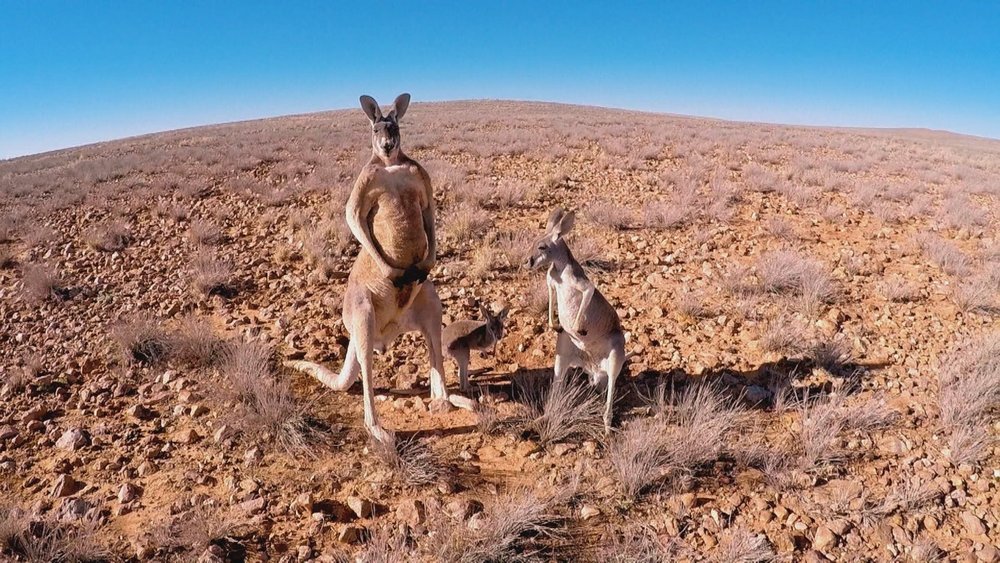

Kangaroo: A Love-Hate Story is an exceptionally brutal film. It presents an Australia that rages on in the nighttime, with the death of Australia’s iconic marsupial occurring in epic proportions, their heads, feet and tails left in the bush to rot. Joey’s are bashed against the bull bar of the ute that cut through the night like a knife,finding an unassuming victim standing, blinded by its lights. If it sounds like I’m being hyperbolic – I’m not. The footage in the film is damning, but directors Kate McIntyre Clere and Michael McIntyre both know that this can’t just be a film about the death of the kangaroo, and in turn, they allow the pro-kangaroo hunters equal space to explain why they should be allowed to hunt kangaroos. A difficult watch, but an important one. If there were any justice,this documentary would have the same effect that Blackfish and The Cove did for their respective regions.
14. Border Politics
Director: Judy Rymer
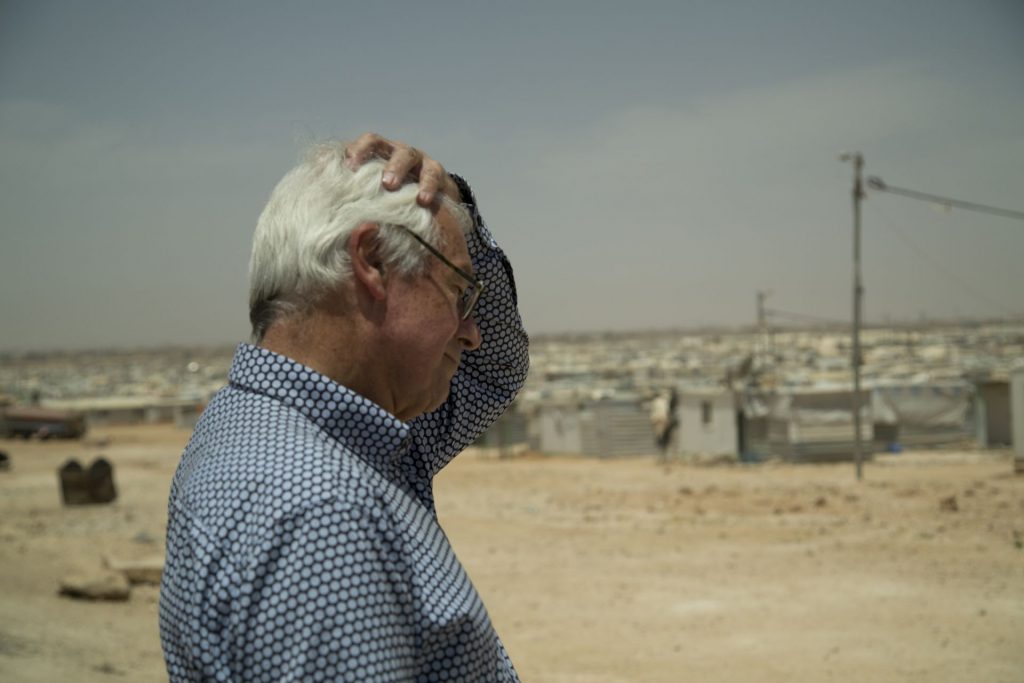

Human rights barrister Julian Burnside is one of the many heroes in Australia who work tirelessly to help make the lives of refugees easier. Director Judy Rymer focuses the camera onto Julian as he traverses the world, looking at the way the world is dealing with the unfolding refugee crisis. Oddly, this is not as depressing as Eva Orner’s essential Chasing Asylum, but that doesn’t mean it’s without consequence. Julian Burnside sits down with great minds like Lord Dubs and Gillian Triggs to explore how to change the world and get people to respect and care about the plight of refugees again. Australia has continually crafted interesting films about refugees (all, interestingly,directed by women), and Border Politics is another film which adds to the conversation that we all need to pay attention to.
13. Boy Erased
Director: Joel Edgerton
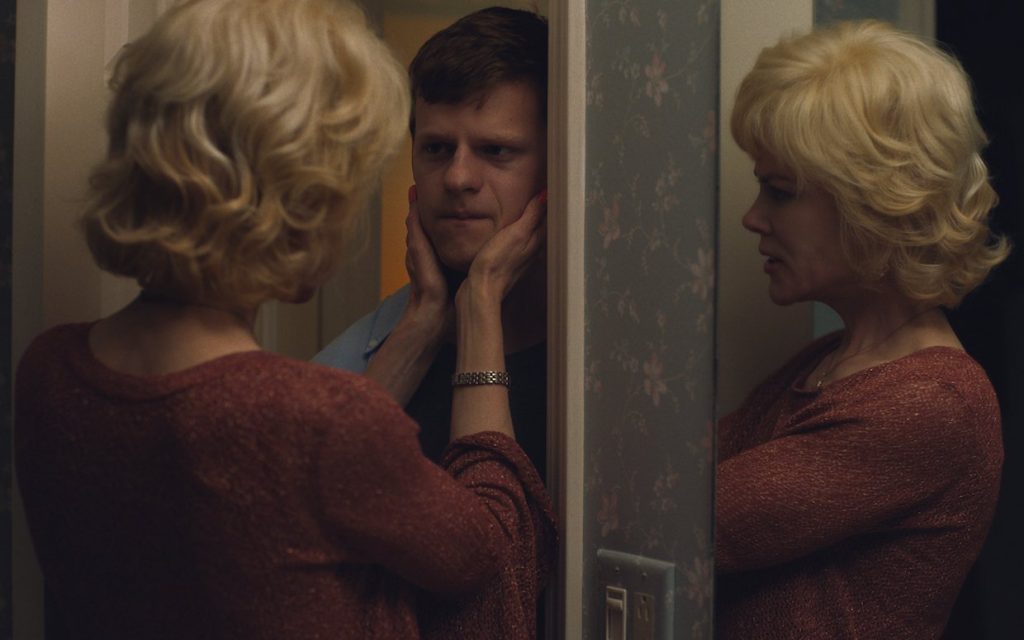

Lucas Hedges is reason alone to watch this disturbing look into the world of conversion ‘therapy’ (again, it’snot therapy, but torture). Joel Edgerton takes the reigns as triple threat actor, writer, and director, as he adapts Garrad Conley’s book Boy Erased for the big screen. While it’s clear that this is written from the eyes of a straight man, it is also written with care, respect, and a desire to understand where all involved with this horrendous act are coming from. Whether it be Hedges Jared, or his Baptist parents (Nicole Kidman and Russell Crowe), or the man who enacts the ‘therapy’, Jared Eamons (Joel Edgerton), Boy Erased encourages an understanding of how a society can allow such a heinous crime to be fostered, encouraged, and allowed to thrive. Upsetting, disturbing, and yet,still extremely timely, Boy Erased is not your typical Australian film (after all, it’s set in America), but given the news that these kinds of ‘therapy’ camps exist in Australia, well, it’s no less potent with its message.
12. Jirga
Director: Benjamin Gilmour
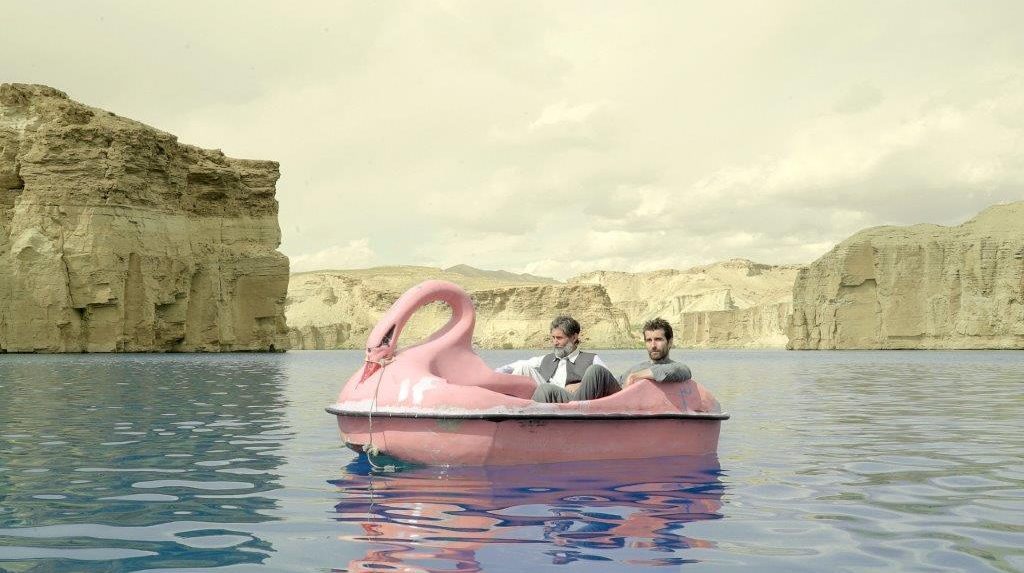

A lot like Finding the Line, Jirga is slight on its run time, but not slight on its thematic content. Playing like a pared back road movie, with ex-soldier Mike Wheeler (a superb Sam Smith)heading on a path of redemption through Afghanistan. Director Benjamin Gilmour aims to explore the effect that Australian soldiers had on Afghanistan, and in turn, what effect Afghanistan had on the soldiers who battled the wars there. Jirga looks at what happens when the war torn soldier has finished their tour, and asks, how are they supposed to redeem themselves in the face of a still open wound?
11. Have You Seen the Listers?
Director: Eddie Martin
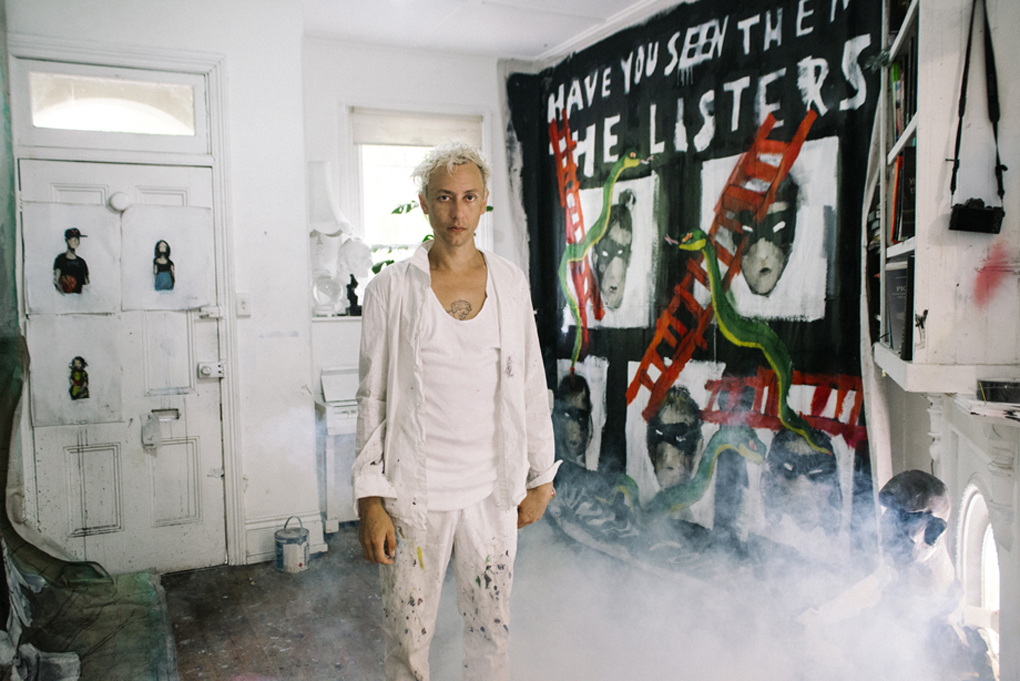

Director Eddie Martin has crafted a catalogue of films about artists in Australia. His first film, Jisoe, looked at graffiti artist Jisoe in Melbourne, then follow up film All This Mayhem (one of the great Australian documentaries) flicked through the lives of skateboarding brothers as they took on the world. In his latest work, Have You Seen the Listers?, Eddie Martin puts artist Anthony Lister under the microscope. Getting under the skin of what makes an artist work is what Martin does best. Anthony Lister isn’t a particularly likeable guy all the time (who is?), but you get a great understanding of what makes him tick, and the difficulties that he has with straddling success, drug use, family life, and generally living in a world that struggles to accept that someone like Anthony Lister wants to make art and exist. Your mileage may vary with the apparent lionisation of Lister as a failed hero, but for me, it was exactly what I wanted from an Eddie Martin film– explorative, entertaining, and engaging.
10. Jill Bilcock: Dancing the Invisible
Director: Axel Grigor
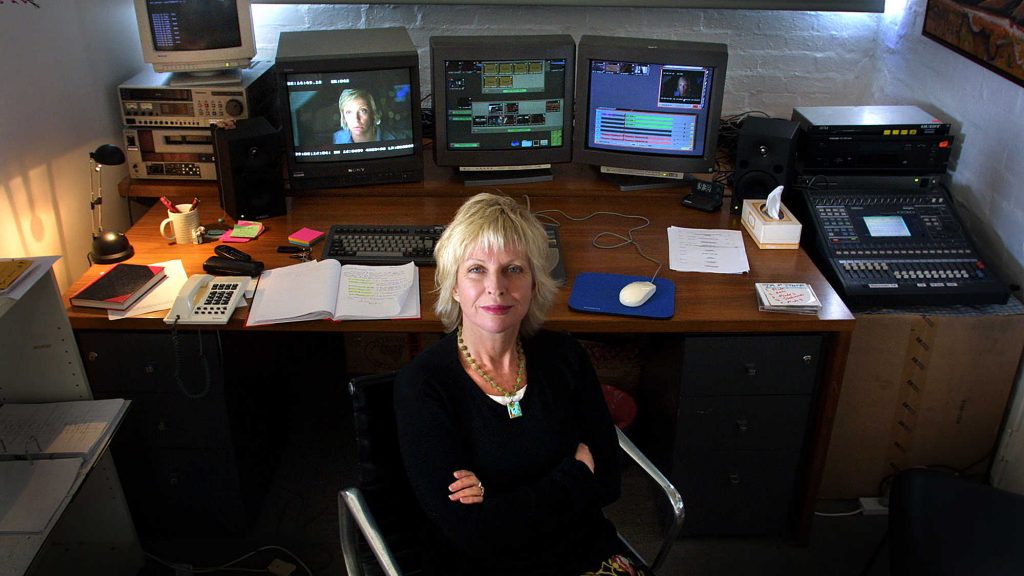

The art of editing is one that sometimes goes unnoticed by the average film watcher. After all, good editing shouldn’t be noticeable at all. Yet, it’s an important aspect of filmmaking –putting the collated parts of film together to not only make sense of out the chaos, but to also further the dialogue that the film is presenting. When you think of the work of Baz Luhrmann, you think of zippy, fast paced, frenetic sequences, full of energy and vibrancy. And when you think of that kind of energy, you’re thinking of the work of Jill Bilcock. This essential documentary shows the strength of an editor who understands the work of the director they’reworking alongside, and in turn, furthers that directors talent through the art of editing. Even if you’re not all that interested in the machinations of cinema, Jill Bilcock: Dancing the Invisible is still an essential film about one of the great Australian women.
Director: Jason Raftopolous
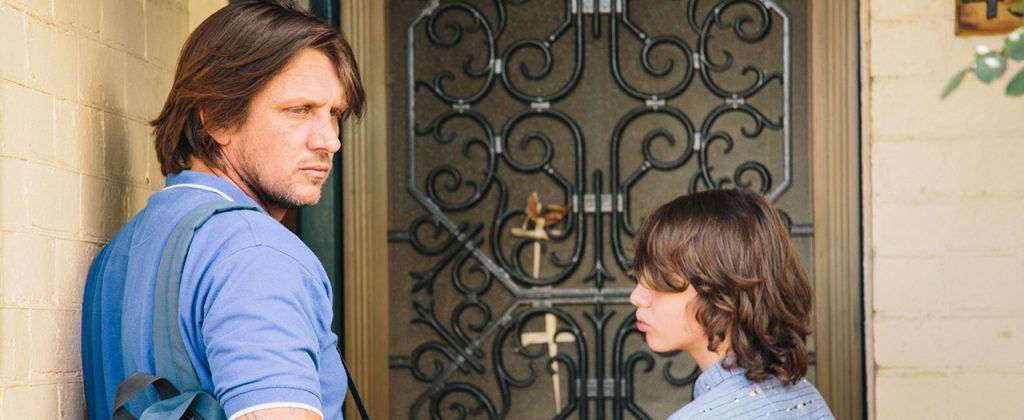

Actor Damian Hill delivered a stunning one-two punch with his 2015 film Pawno and the follow up West of Sunshine. Both films carry performances that most would wish they could have just once in their career. Quietly, Hill managed to craft a career around the deconstruction of the Aussie male – what it means to be a downbeat dad, or to be a guy who has never really amounted to much, or maybe a country fella finding love in an off kilter world (thanks The Leftovers) –and by all accounts, his next work, M4M, would have furthered that discourse. Look, West of Sunshine is great because of Hill, and because of director Jason Raftopolous,it’s a duo of brilliance. It’s a real fucking shame that due to the cruelty of life, we’re robbed from the great career that Hill would have had going forward. Gone, but never, ever forgotten.
Director: Clayton Jacobson
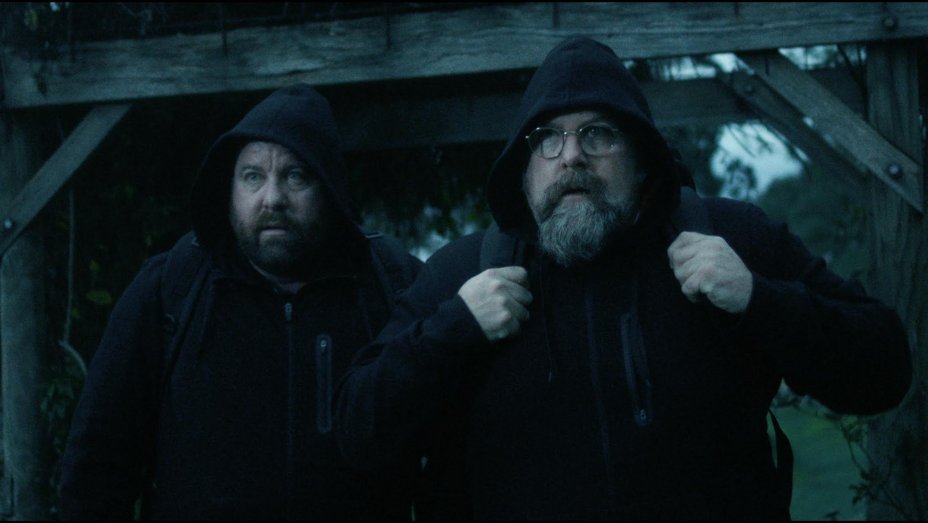

How do you follow up a film like Kenny? Well, you simply don’t try and make Kenny 2.0, and instead go for broke and create something that flips expectations on its head and says, y’know what, we’re gonna give you a dark comedy that’ll leave you well and truly satisfied in ninety minutes. The Jacobson brothers take up centre stage here playing two brothers (as the title suggests) heading back home to do…something. To say any more is to spoil the twists and turns that carry through in this very Coen-esque flick. Darkly comedic, yet still carrying a fair heft of emotional kick, Brothers’ Nest unfairly went below too many radars this year. It’s a shame, because this deserves a huge audience. It’s an airtight thriller that hits every beat it aims to, and a few more for added thrills. Killer stuff.
7. [censored]
Director: Sari Braithwaite
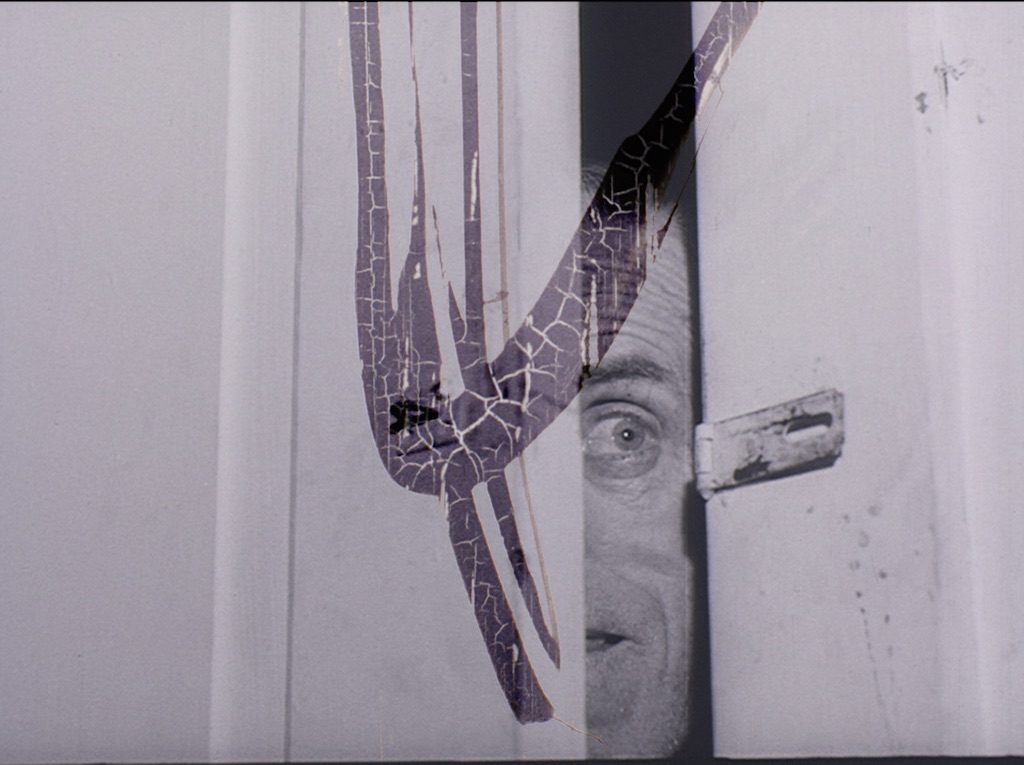

Director Sari Braithwaite’s dive into the archive of almost 2,000 clips of excised footage from films released in Australia between 1958 to 1971 is one that feels extremely timely.Initially, Braithwaite sees her actions of exploring this archive as a way of liberating the censored footage, as a way of liberating the art that was once held captive by unseen and unknown eyes in a building far away somewhere in Australia. But, as she dives further into the footage, she recognises a purely masculine viewpoint of the films that has allowed for sexual assault to thrive in a world of complacency. [censored] raises questions it simply can’t answer, but it’s not the point of the film to do so.It’s merely adding to the conversation we so desperately need to have about cinema as a whole – at what point does the reparation of the male gaze, and the implementation of the female gaze start to kick in?
Director: Catherine Scott
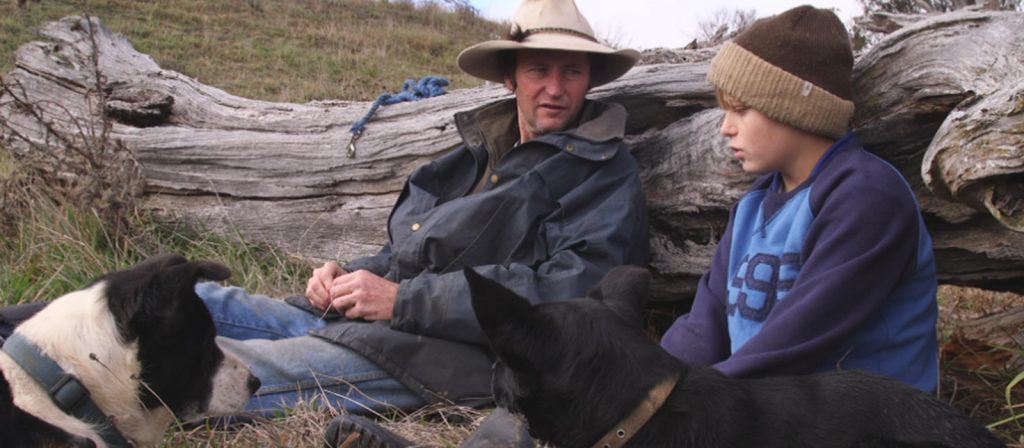

Sometimes you need a really positive cry. Crying is great, it is. Having a good, positive cry, one which comes about because of the positive actions of one person, trying to do their best to make the lives of others better, is one of the most satisfying cries you’ll ever have. And boy does Backtrack Boys deliver that kind of warmth in spades. Jackaroo Bernie Shakeshaft runs a youth program in Armidale, NSW, where wayward kids are giving a place to learn how to grow and improve themselves and set them back on track to having a positive life. Bernie does this by getting these kids to engage with the dogs he has on his property. Working dogs that have energy up the wazzoo and need a bit of peace and calm in their life, a lot like the kids that end up in the program do. It’s simple, sweet, beautiful, inspirational stuff, and dammit, you need this film in your life.
5. Upgrade
Director: Leigh Whannell
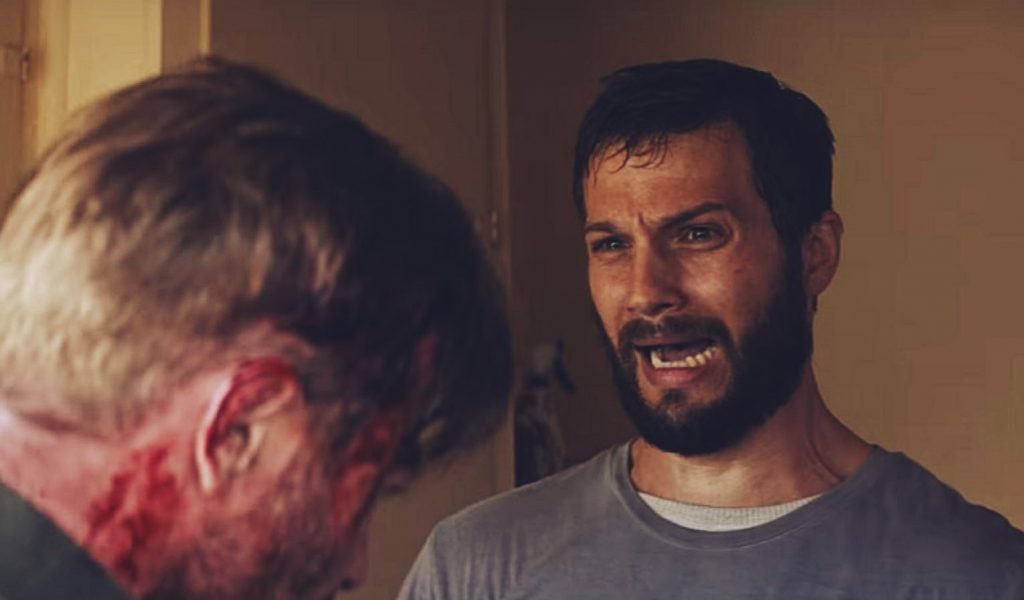

If you had told me at the beginning of the year that Logan Marshall Green would give one of the years best performances in a story about a guy who talks to the computer chip in his head, well, I’d have thought you were crazy. But, here we are with Upgrade being a legitimately great Aussie sci-fi flick. Leigh Whannell knows exactly what he’s doing, and what that is is crafting a wannabe Paul Verhoeven/David Cronenberg action flick that has one heck of an emotional kick at the end. Violent in all the right ways,hilarious in unexpected doses, and most importantly, an extremely great time all round, Upgrade is one of the best surprises of the year. You’ll be kicking yourself for not getting in on the ground floor with this one, it’s gonna be a cult hit for sure.
4. Island of the Hungry Ghosts
Director: Gabrielle Brady
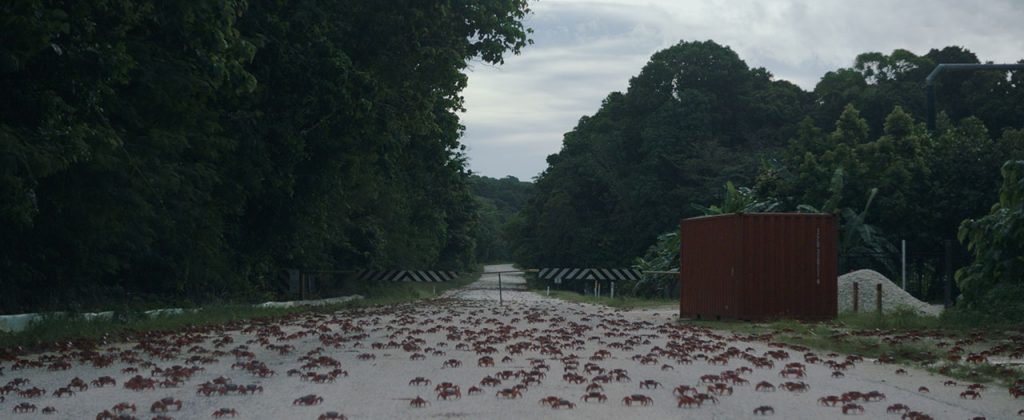

Alongside Border Politics, Island of the Hungry Ghosts is a timely assessment of Australia’s role in the unfurling human rights saga that is mandatory detention for asylum seekers.Over on the remote Christmas Island is a prison, one established to house and ‘process’the many asylum seekers who aim to call Australia home. Poh Lin Lee is one of the trauma counsellors assigned to the island to help out with their care, but the ever escalating toll of red tape put in her path ensures that she’s unable to carry out her job of caring for those in need. Meanwhile, the 40 million red land crabs make their migration across the island to the shoreline. Director Gabrielle Brady has crafted a stunning film that is visually striking as well as being emotionally devastating. Simply put, this is the finest documentary of 2018.
Directors: Soda_Jerk
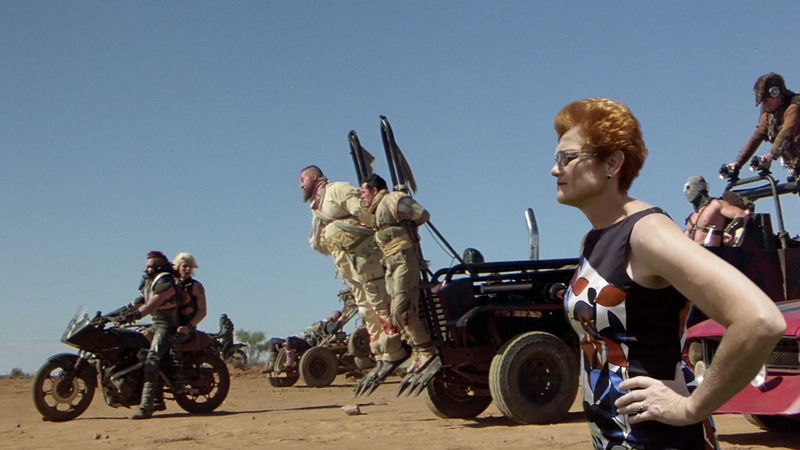

Terror Nullius is a work of pure genius. In an era where politics and mayhem has become the perverse popcorn entertainment of our times, Soda_Jerk come along and conjure up this maniacal,genius, ‘burn down the patriarchy’, down with racism, pro-refugee, ultra-left leaning, piece of work. It’s like cotton candy for the Australian film loving,left leaning folks. I adore this work. It’s timeless and timely. It’s hilarious. It’s raucous. It is just downright fucking great. If you missed this as it played around Australia in 2018, then fear not, it’ll come to you in some form down the line. And when it does, strap yourself in and hook yourself up.You’re in for a bloody rip roaring ride.
Director: Alena Lodkina


No film surprised me more this year than Strange Colours. Coming near the end of Perth’s great Revelation Film Festival, I somehow nearly missed this Australian film. It slipped by my radar, and I managed to squeeze it into my schedule, thinking it would be a simple film to fill two hours of my life. Knowing nothing about it, I was quietly consumed by its peaceful, calm, patient exploration of Australian masculinity in the middle of nowhere. This is not Wake in Fright. This is the reclamation of a world that many think they already have pegged. It’s a film that embraces loneliness, looking at those in the world who live a life full of mournful peace, floating through being merely content with having a piece of dirt they can sleep on. Kate Cheel gives the finest performance this year – her quiet,unassuming, ever observing Milena simply exists in a world that she doesn’t entirely know how to navigate. Daniel P. Jones is acidic as her father, and Justin Courtin carries the flame of Damien Hill in a supporting role. In my review, I compared Lodkina to Kelly Reichardt, and the comparison is apt, but Lodkina is a voice all to herself. I can’t wait to see where she goes next.
Director: Warwick Thornton
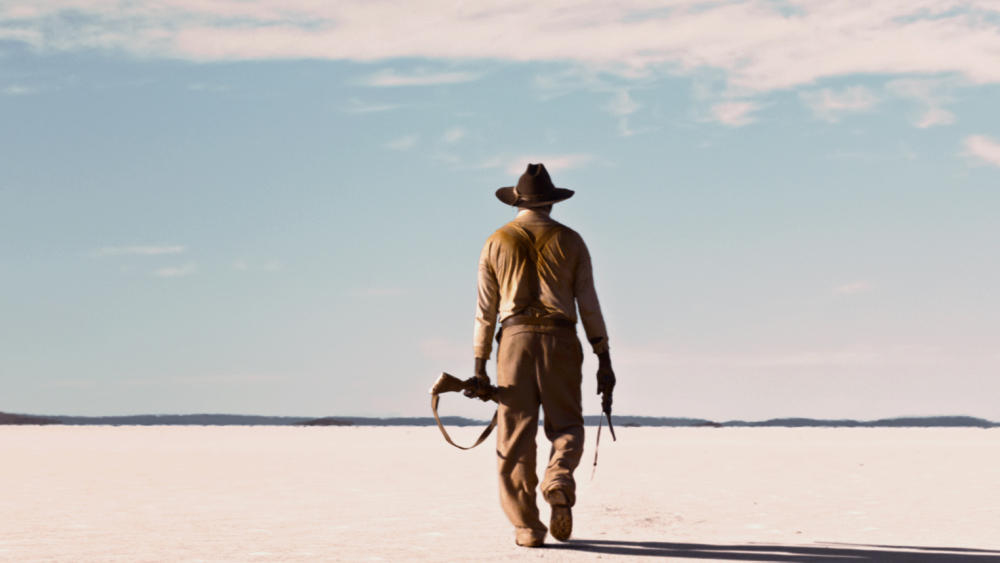

I first watched Sweet Country way back in December 2017 at a press screening. I knew right then that I’d seen one of the great Australian films (so much so that it’s already launched into my Top 100 films list).Director Warwick Thornton has taken the history of Australia and delivered the truth. Showing colonial Australia through the eyes of the first nations people is one that so rarely occurs on film, and when it does here, it does so with a force that demands to be reckoned with. So rarely has Australian history been laid bare the way it is in this film, demanding white viewers sit up and take notice of the violence that has perpetuated throughout the generations, with the senseless slaughter of indigenous Australians still occurring today, just under the guise of ‘deaths in custody’. This is, quite simply, a perfect film.Important, powerful, devastating. No word that I put here is enough for this film. It is what Australian cinema needs.
Head over to the next page to read about some of the best short films from 2018 as well as the Best Director, Acting and Screenplay…


